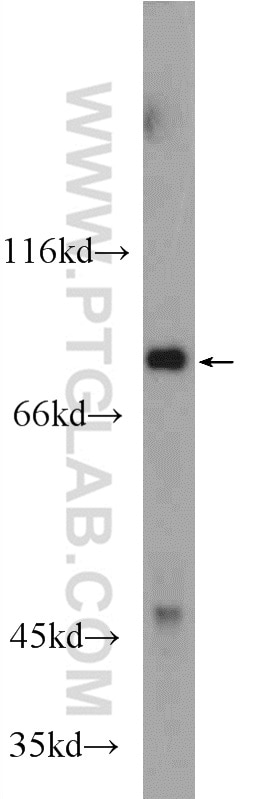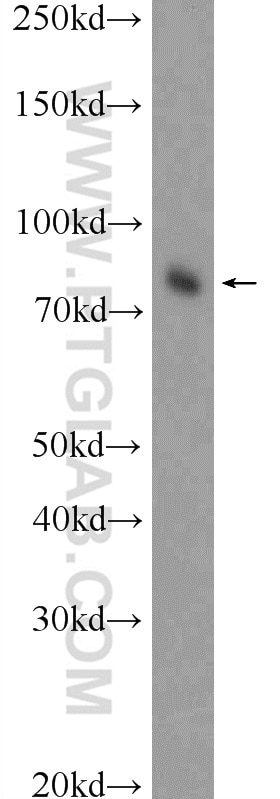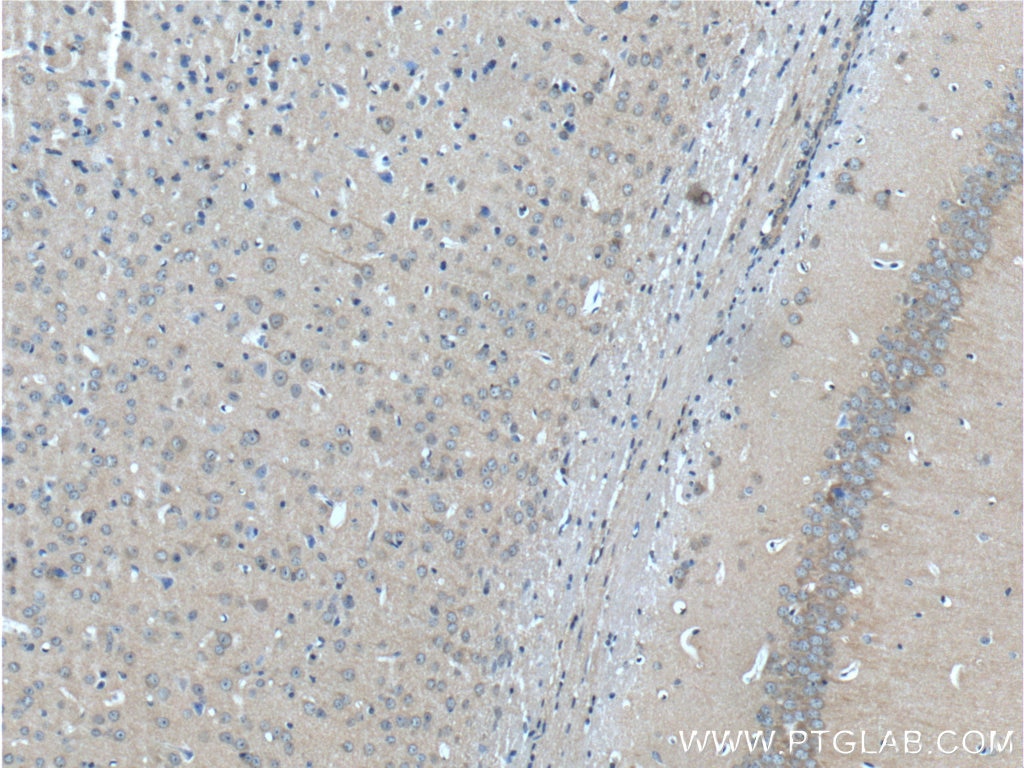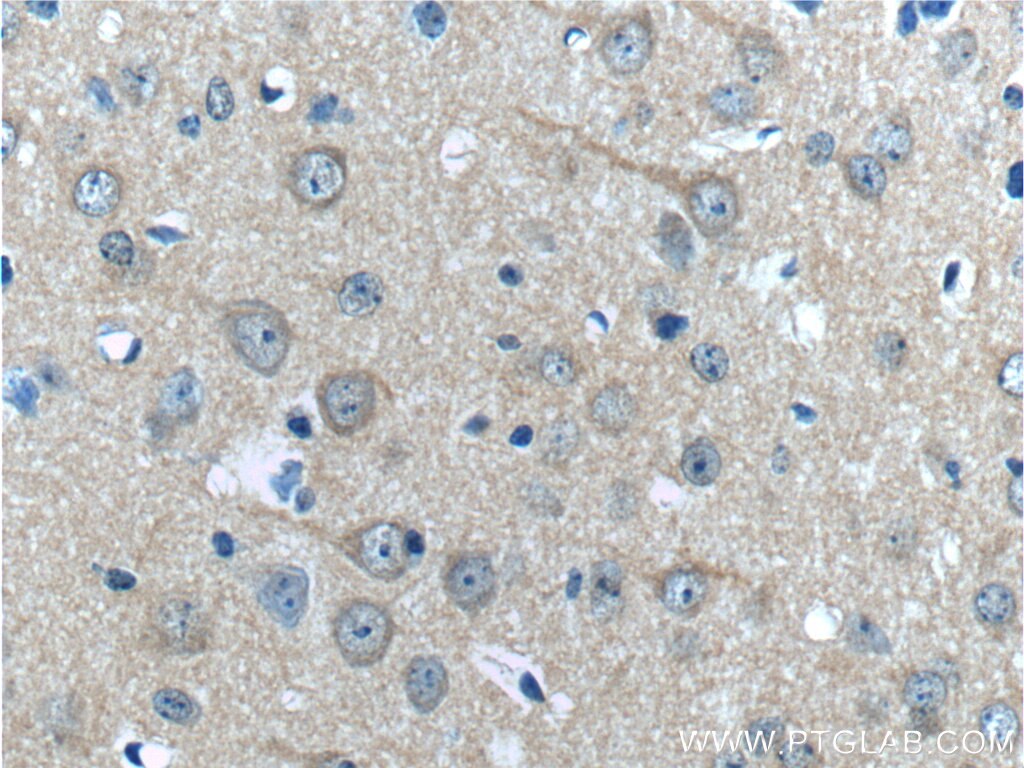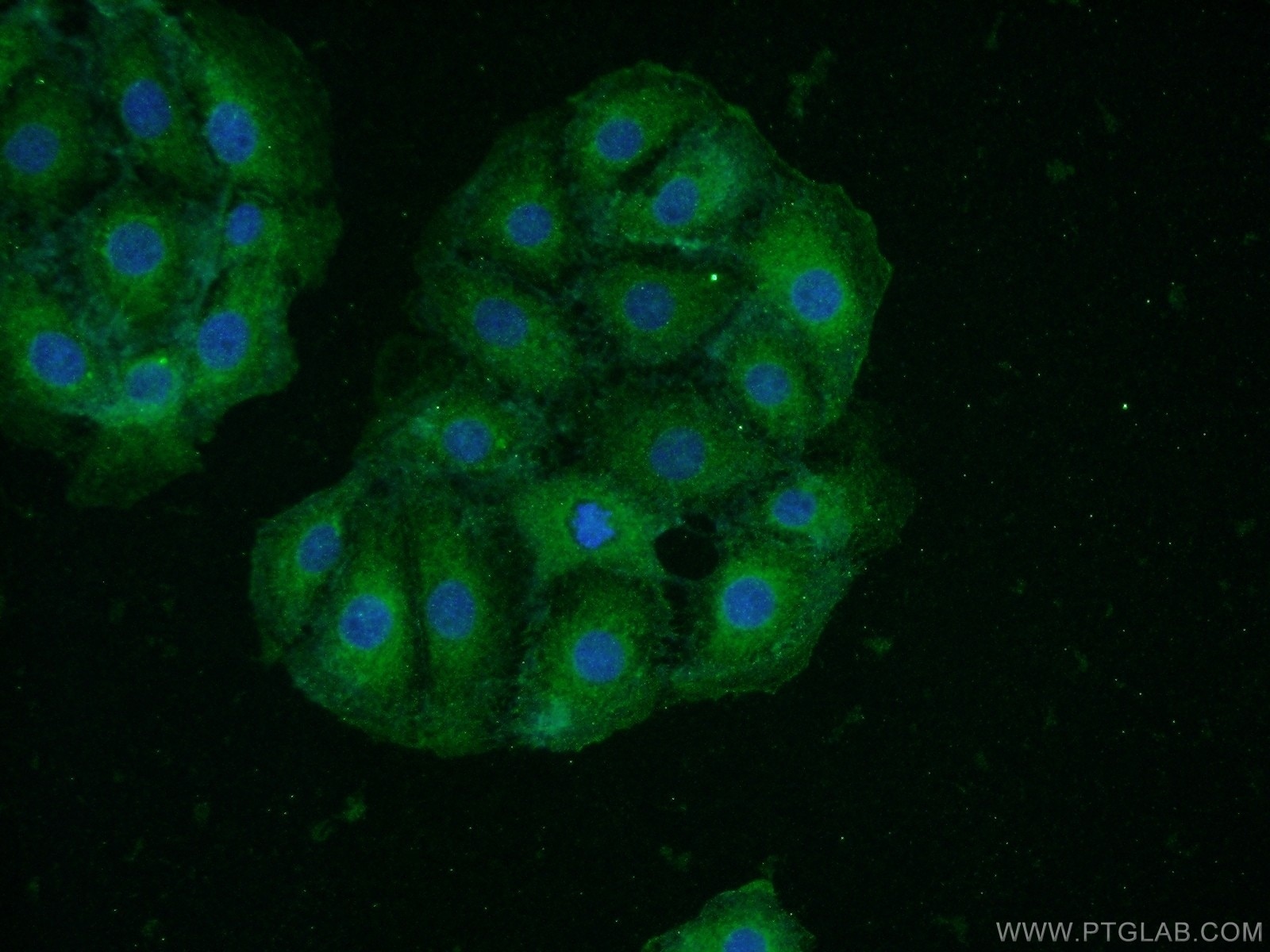HAP1 Polyklonaler Antikörper
HAP1 Polyklonal Antikörper für WB, IHC, IF/ICC, ELISA
Wirt / Isotyp
Kaninchen / IgG
Getestete Reaktivität
human, Maus
Anwendung
WB, IHC, IF/ICC, ELISA
Konjugation
Unkonjugiert
Kat-Nr. : 25133-1-AP
Synonyme
Geprüfte Anwendungen
| Erfolgreiche Detektion in WB | fetales humanes Hirngewebe |
| Erfolgreiche Detektion in IHC | Maushirngewebe Hinweis: Antigendemaskierung mit TE-Puffer pH 9,0 empfohlen. (*) Wahlweise kann die Antigendemaskierung auch mit Citratpuffer pH 6,0 erfolgen. |
| Erfolgreiche Detektion in IF/ICC | SH-SY5Y-Zellen |
Empfohlene Verdünnung
| Anwendung | Verdünnung |
|---|---|
| Western Blot (WB) | WB : 1:500-1:1000 |
| Immunhistochemie (IHC) | IHC : 1:20-1:200 |
| Immunfluoreszenz (IF)/ICC | IF/ICC : 1:20-1:200 |
| It is recommended that this reagent should be titrated in each testing system to obtain optimal results. | |
| Sample-dependent, check data in validation data gallery | |
Veröffentlichte Anwendungen
| WB | See 4 publications below |
| IHC | See 1 publications below |
| IF | See 1 publications below |
Produktinformation
25133-1-AP bindet in WB, IHC, IF/ICC, ELISA HAP1 und zeigt Reaktivität mit human, Maus
| Getestete Reaktivität | human, Maus |
| In Publikationen genannte Reaktivität | human, Maus |
| Wirt / Isotyp | Kaninchen / IgG |
| Klonalität | Polyklonal |
| Typ | Antikörper |
| Immunogen | HAP1 fusion protein Ag17705 |
| Vollständiger Name | huntingtin-associated protein 1 |
| Berechnetes Molekulargewicht | 671 aa, 76 kDa |
| Beobachtetes Molekulargewicht | 75-80 kDa |
| GenBank-Zugangsnummer | BC156728 |
| Gene symbol | HAP1 |
| Gene ID (NCBI) | 9001 |
| Konjugation | Unkonjugiert |
| Form | Liquid |
| Reinigungsmethode | Antigen-Affinitätsreinigung |
| Lagerungspuffer | PBS with 0.02% sodium azide and 50% glycerol |
| Lagerungsbedingungen | Bei -20°C lagern. Nach dem Versand ein Jahr lang stabil Aliquotieren ist bei -20oC Lagerung nicht notwendig. 20ul Größen enthalten 0,1% BSA. |
Hintergrundinformationen
HAP1 (Huntingtin-associated protein 1) was originally identified as neuronal protein that specifically associates with HTT/huntingtin and the binding is enhanced by an expanded polyglutamine repeat within HTT. HTT is expressed ubiquitously, while HAP1 is expressed predominantly in the central nervous system (CNS). Both HTT and HAP1 participate in intracellular trafficking. HAP1 is involved in the vesicular transport, gene transcription regulation, membrane receptor trafficking and other functions such as calcium release and protein aggregation (PMID: 19262167).
Protokolle
| PRODUKTSPEZIFISCHE PROTOKOLLE | |
|---|---|
| WB protocol for HAP1 antibody 25133-1-AP | Protokoll herunterladen |
| IHC protocol for HAP1 antibody 25133-1-AP | Protokoll herunterladenl |
| IF protocol for HAP1 antibody 25133-1-AP | Protokoll herunterladen |
| STANDARD-PROTOKOLLE | |
|---|---|
| Klicken Sie hier, um unsere Standardprotokolle anzuzeigen |
Publikationen
| Species | Application | Title |
|---|---|---|
Toxicology Methamphetamine inhibits huntingtin-associated protein 1-mediated tyrosine receptor kinase B endocytosis resulting the neuroprotective dysfunction of brain-derived neurotrophic factor | ||
FEBS Open Bio Proximity-dependent biotinylation reveals an interaction between ubiquitin-specific peptidase 46 and centrosome-related proteins | ||
Mol Biol Rep Huntingtin-associated protein 1 is a potential tumor suppressor for gastric cancer | ||
Nat Commun Systematic HOIP interactome profiling reveals critical roles of linear ubiquitination in tissue homeostasis |
